By: Charles Waddell Chesnutt (1858-1932) |
|---|
 House Behind the Cedars
House Behind the Cedars
In this, Chesnutt's first novel, he tells the tragic story of love set against a backdrop of racism, miscegenation and “passing” during the period spanning the antebellum and reconstruction eras in American history. And through his use of the vernacular prevalent in the South of that time, Chesnutt lent a compassionate voice to a group that America did not want to hear. More broadly, however, Chesnutt illustrated, in this character play, the vast and perhaps insurmountable debt this country continues to pay for the sins of slavery.
|
 Colonel's Dream
Colonel's Dream
In this novel, Chesnutt described the hopelessness of Reconstruction in a post-Civil War South that was bent on reestablishing the former status quo and rebuilding itself as a region of the United States where new forms of "slavery" would replace the old. This novel illustrated how race hatred and the impotence of a reluctant Federal Government trumped the rule of law, ultimately setting the stage for the rise of institutions such as Jim Crow, lynching, chain gangs and work farms--all established with the intent of disenfranchising African Americans.
|
By: Charlotte Brontë (1816-1855) |
|---|
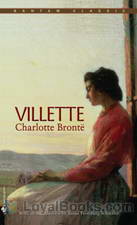 Villette
Villette
Villette was Charlotte Bronte's last published novel. It came out in 1853, just two years before her death in 1855. It is a poignant, strangely lonely and sad work, steeped in conflict between society's demands and personal desires.
Set in the fictional town of Villette in France, it is the story of the young and intelligent Lucy Snowe, the narrator in the book. She is described by another character in the book as having “no beauty...no attractive accomplishments...” and strangely seems to lack a personal history or living relatives...
|
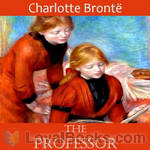 The Professor
The Professor
The book tells the story of a young man named William Crimsworth. It describes his maturation, his loves and his eventual career as a professor at an all-girls’ school.
|
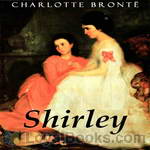 Shirley
Shirley
Shirley is an 1849 social novel by the English novelist Charlotte Brontë. It was Brontë's second published novel after Jane Eyre (originally published under Brontë's pseudonym Currer Bell). The novel is set in Yorkshire in the period 1811–1812, during the industrial depression resulting from the Napoleonic Wars and the War of 1812. The novel is set against a backdrop of the Luddite uprisings in the Yorkshire textile industry.
|
 Biographical Notes on the Pseudonymous Bells
Biographical Notes on the Pseudonymous Bells
|
By: Christopher Marlowe (1564-1593) |
|---|
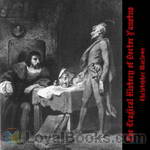 The Tragical History of Doctor Faustus
The Tragical History of Doctor Faustus
The Tragical History of Doctor Faustus, normally known simply as Doctor Faustus, is a play by Christopher Marlowe, based on the Faust story, in which a man sells his soul to the devil for power and knowledge. Doctor Faustus was first published in 1604, eleven years after Marlowe's death and at least twelve years after the first performance of the play.
|
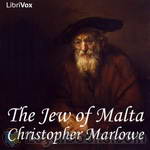 The Jew of Malta
The Jew of Malta
Christopher “Kit” Marlowe (baptised 26 February 1564 – 30 May 1593) was an English dramatist, poet, and translator of the Elizabethan era. The foremost Elizabethan tragedian before William Shakespeare, he is known for his magnificent blank verse, his overreaching protagonists, and his own untimely death. The Jew of Malta (1589) is an original story of religious conflict, intrigue, and revenge, set against a backdrop of the struggle for supremacy between Spain and the Ottoman Empire in the Mediterranean...
|
 Hero and Leander
Hero and Leander
“Who ever lov’d, that lov’d not at first sight?” The wonder-decade of the English drama was suddenly interrupted in 1592, when serious plague broke out in London, forcing the closure of the theatres. Leading playwrights took to penning languorously erotic poetry to make ends meet: so we have Venus and Adonis, The Rape of Lucrece - and Marlowe’s blazing masterpiece, Hero and Leander. Marlowe’s poem became more notorious than either of Shakespeare’s, due not only to its homophile provocations but also to the scandal attaching to every aspect of Marlowe’s brief life, violently ended in a mysterious brawl, leaving the poem in an unfinished state...
|
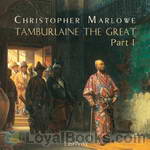 Tamburlaine the Great
Tamburlaine the Great
Tamburlaine the Great is the name of a play in two parts by Christopher Marlowe. It is loosely based on the life of the Central Asian emperor, Timur 'the lame'. Written in 1587 or 1588, the play is a milestone in Elizabethan public drama; it marks a turning away from the clumsy language and loose plotting of the earlier Tudor dramatists, and a new interest in fresh and vivid language, memorable action, and intellectual complexity. Along with Thomas Kyd's The Spanish Tragedy, it may be considered the first popular success of London's public stage...
|
 Tragical History of Doctor Faustus (1616 version)
Tragical History of Doctor Faustus (1616 version)
The Tragicall History of the Life and Death of Doctor Faustus, commonly referred to simply as Doctor Faustus, is a play by Christopher Marlowe, based on the Faust story, in which a man sells his soul to the devil for power and knowledge. Doctor Faustus was first published in 1604, eleven years after Marlowe's death and at least twelve years after the first performance of the play. "No Elizabethan play outside the Shakespeare canon has raised more controversy than Doctor Faustus. There is no agreement concerning the nature of the text and the date of composition...
|
 Edward II
Edward II
Christopher Marlowe's Elizabethan tragedy focuses on the downfall of King Edward II, whose love for his favorite courtier, Piers Gaveston, leads to rebellion.
|
 Massacre at Paris
Massacre at Paris
|
 The Works of Christopher Marlowe, Vol. 3 (of 3)
The Works of Christopher Marlowe, Vol. 3 (of 3)
|
By: Christopher Morley (1890-1957) |
|---|
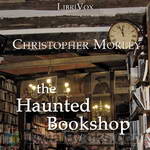 The Haunted Bookshop
The Haunted Bookshop
Roger Mifflin is the somewhat eccentric proprietor of The Haunted Bookshop, a second-hand bookstore in Brooklyn that is “haunted by the ghosts of all great literature.” Beginning with the arrival of a young advertising man and the mysterious disappearance of a certain volume from the shelves of the bookshop, a lively and often humorous tale of intrigue unfolds, generously sprinkled with liberal doses of Roger’s unique philosophy on literature and book selling.
|
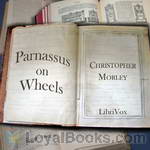 Parnassus on Wheels
Parnassus on Wheels
Parnassus on Wheels is about a fictional traveling book-selling business. The original owner of the business, Roger Mifflin, sells it to 39-year-old Helen McGill, who is tired of taking care of her ailing older brother, Andrew.
|
 Pipefuls
Pipefuls
A delightful collection of 48 essays on various topics of the human condition that caught his fancy. Witty, insightful and funny of course and on occasion thought provoking and even disturbing. From the preface "These sketches gave me pain to write; they will give the judicious patron pain to read; therefore we are quits. I think, as I look over their slattern paragraphs, of that most tragic hour—it falls about 4 p. m. in the office of an evening newspaper—when the unhappy compiler tries to round up the broodings of the day and still get home in time for supper...
|
 Where the Blue Begins
Where the Blue Begins
|
 In the Sweet Dry and Dry
In the Sweet Dry and Dry
Written just before Prohibition to entail the possible troubles that might happen en route. Both sides of the argument, or battle as the case may be, strike out with various over-top methods like legislating most fruits and vegetables as unsafe or intoxicating large groups with breathable alcohol.
|
 White Lies
White Lies
 Put Yourself in His Place
Put Yourself in His Place
 A Terrible Temptation A Story of To-Day
A Terrible Temptation A Story of To-Day
 A Woman-Hater
A Woman-Hater
 Peg Woffington
Peg Woffington
 A Simpleton
A Simpleton
 Modern Scottish Minstrel
Modern Scottish Minstrel
 The Modern Scottish Minstrel, Volume I. The Songs of Scotland of the past half century
The Modern Scottish Minstrel, Volume I. The Songs of Scotland of the past half century
 The Modern Scottish Minstrel, Volume IV. The Songs of Scotland of the Past Half Century
The Modern Scottish Minstrel, Volume IV. The Songs of Scotland of the Past Half Century
 The Modern Scottish Minstrel, Volume V. The Songs of Scotland of the Past Half Century
The Modern Scottish Minstrel, Volume V. The Songs of Scotland of the Past Half Century
 The Modern Scottish Minstrel, Volume VI The Songs of Scotland of the Past Half Century
The Modern Scottish Minstrel, Volume VI The Songs of Scotland of the Past Half Century
 The Modern Scottish Minstrel, Volume II. The Songs of Scotland of the past half century
The Modern Scottish Minstrel, Volume II. The Songs of Scotland of the past half century
 The Modern Scottish Minstrel, Volume III The Songs of Scotland of the Past Half Century
The Modern Scottish Minstrel, Volume III The Songs of Scotland of the Past Half Century
 Chimney-Pot Papers
Chimney-Pot Papers
 There's Pippins and Cheese to Come
There's Pippins and Cheese to Come
 The Fifth of November A Romance of the Stuarts
The Fifth of November A Romance of the Stuarts
 Percy Bysshe Shelley as a Philosopher and Reformer
Percy Bysshe Shelley as a Philosopher and Reformer
 An Ode Pronounced Before the Inhabitants of Boston, September the Seventeenth, 1830, at the Centennial Celebration of the Settlement of the City
An Ode Pronounced Before the Inhabitants of Boston, September the Seventeenth, 1830, at the Centennial Celebration of the Settlement of the City
 Verses and Translations
Verses and Translations
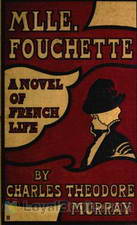 Mlle. Fouchette A Novel of French Life
Mlle. Fouchette A Novel of French Life
 Godfrey Marten, Undergraduate
Godfrey Marten, Undergraduate
 There is a Reaper ...
There is a Reaper ...
 Monkey On His Back
Monkey On His Back
 Vital Ingredient
Vital Ingredient
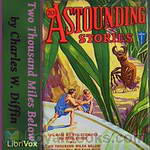 Two Thousand Miles Below
Two Thousand Miles Below
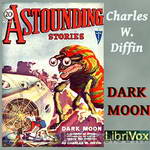 Dark Moon
Dark Moon
 The Finding of Haldgren
The Finding of Haldgren
 House Behind the Cedars
House Behind the Cedars
 Colonel's Dream
Colonel's Dream
 Angel Agnes The Heroine of the Yellow Fever Plague in Shreveport
Angel Agnes The Heroine of the Yellow Fever Plague in Shreveport
 Evolution of Expression — Volume 1
Evolution of Expression — Volume 1
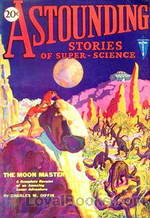 Moon Master
Moon Master
 The Hammer of Thor
The Hammer of Thor
 Harvard Classics Volume 28 Essays English and American
Harvard Classics Volume 28 Essays English and American
 The Harvard Classics, Volume 49, Epic and Saga With Introductions And Notes
The Harvard Classics, Volume 49, Epic and Saga With Introductions And Notes
 Their Mariposa Legend; a romance of Santa Catalina
Their Mariposa Legend; a romance of Santa Catalina
 Villette
Villette
 The Professor
The Professor
 Shirley
Shirley
 Biographical Notes on the Pseudonymous Bells
Biographical Notes on the Pseudonymous Bells
 Shakespeare Study Programs; The Comedies
Shakespeare Study Programs; The Comedies
 Dora Thorne
Dora Thorne
 The Story Of The Little Mamsell
The Story Of The Little Mamsell
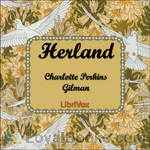 Herland
Herland
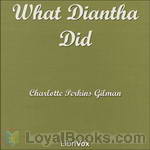 What Diantha Did
What Diantha Did
 The Yellow Wallpaper
The Yellow Wallpaper
 Owindia : a true tale of the MacKenzie River Indians, North-West America
Owindia : a true tale of the MacKenzie River Indians, North-West America
 The Translations of Beowulf A Critical Bibliography
The Translations of Beowulf A Critical Bibliography
 State of the Union Address
State of the Union Address
 The Golf Course Mystery
The Golf Course Mystery
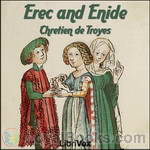 Erec and Enide
Erec and Enide
 Goblin Market, The Prince's Progress, and Other Poems
Goblin Market, The Prince's Progress, and Other Poems
 Long Ago
Long Ago
 Basket of Flowers, The
Basket of Flowers, The
 The Tragical History of Doctor Faustus
The Tragical History of Doctor Faustus
 The Jew of Malta
The Jew of Malta
 Hero and Leander
Hero and Leander
 Tamburlaine the Great
Tamburlaine the Great
 Tragical History of Doctor Faustus (1616 version)
Tragical History of Doctor Faustus (1616 version)
 Edward II
Edward II
 Massacre at Paris
Massacre at Paris
 The Works of Christopher Marlowe, Vol. 3 (of 3)
The Works of Christopher Marlowe, Vol. 3 (of 3)
 The Haunted Bookshop
The Haunted Bookshop
 Parnassus on Wheels
Parnassus on Wheels
 Pipefuls
Pipefuls
 Where the Blue Begins
Where the Blue Begins
 In the Sweet Dry and Dry
In the Sweet Dry and Dry